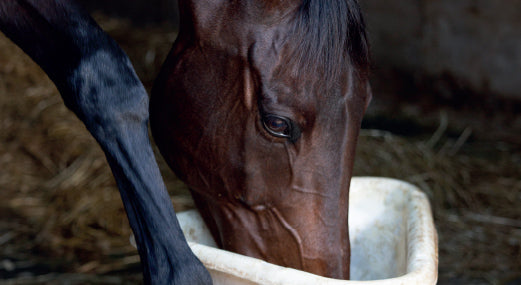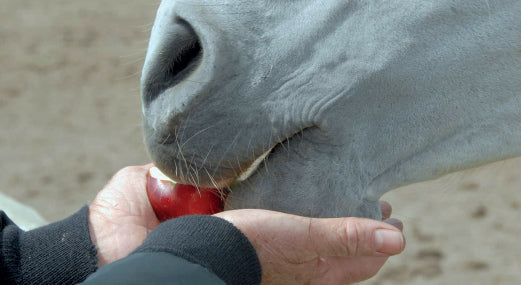Behaviour
Customer Spotlight: Laura & Jane
Background
Laura’s daughter has owned Jane, a 12 year old, 15.2hh, Irish Draft Cross Connemara, for over six years.
As a combination, they competed at BD affiliated level, unaffiliated showjumping and low level eventi...
Read More
Customer Spotlight: Lynn & Sprite
Background
Lynn has owned her Section D gelding, Sprite, since he was 6 months old.
Seen by chance while out cycling on holiday in Wales, Sprite was a welcomed addition to the family, most notably as a companion for t...
Read More
Getting your dog ready for the summer holidays
The dog days of summer are nearly here – some might say they already are - and the holiday season is just around the corner.
Whether you are planning a staycation or travelling further afield with your canine companio...
Read More
Customer Interview: Charlotte and Greyman
What do Science Supplements customers and their horses really think?
Delve behind the scenes into the real life of customers using our products. Real life, honest feedback from real people and their horses – no in...
Read More
Why ‘baby talk’ might be the best way to speak to your horse
How do you speak to your horse?
Many care givers report speaking to their companion animals using a type of speech commonly referred to as ‘pet-directed speech (PDS)’. PDS is characterized as being exaggerated in to...
Read More
How does turnout space affect horses’ stress responses and behavioural interactions?
Background
Horses are highly social animals and can benefit substantially from interactions with other horses. However, group turnout can be associated with an increased injury risk from negative behavioural interact...
Read More
What do horses experience when travelling in a trailer?
Background
Horses are travelled for many reasons. During travelling, horses are exposed to multi-dimensional movements and other stressful stimuli such as noise. Understanding what motion and additional energy demand...
Read More
How does being ridden by different people affect horses’ responses to training?
Riders differ in many aspects including skill, experience, gender, weight, height, and riding style. These differences likely impact on horses ridden by different riders and may result in training cues being applied i...
Read More
How do changes to a normal feeding routine affect equine behaviour?
Consistent management regimes are recommended in the care of horses to minimise the incidence of digestive issues and stereotypic behaviours. Predictable feeding times support good welfare and minimise environmental d...
Read More
How do horses and humans differ in their preference for treats?
The use of treats for companion animals is common. The use of treats by equine caregivers is increasing, although has been little studied to date, especially in comparison to treat use and choice for other companion s...
Read More
The effect of feeding and stable management on stereotypic behaviours in horses
Many horses demonstrate abnormal behaviour patterns as a result of domestic management practices1. These abnormal behaviours are termed ‘stereotypic’ and tend to be repeated and predictable in their occurrence. Horses...
Read More
“Falling back” – How does changing daylength affect equine health and wellbeing?
Winter is coming, and that means some fundamental changes for our horses. Changing daylength and decreased temperatures are two of the most obvious impacts of winter. Cold, dark mornings and evenings become the standa...
Read More












